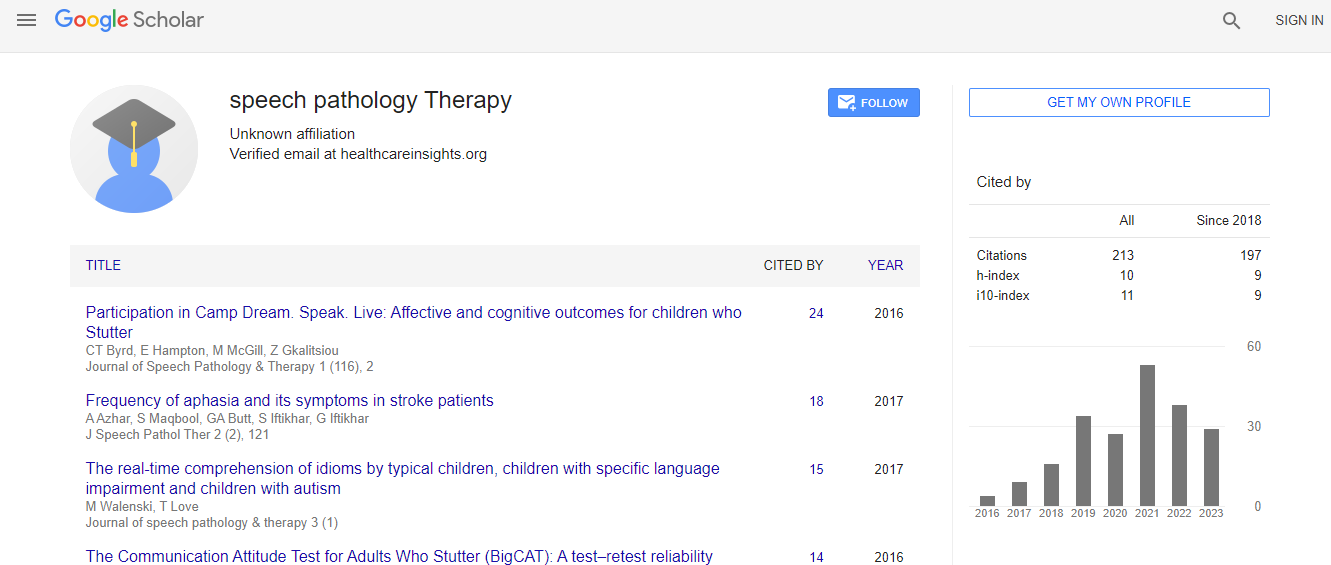Research Article
University Affiliated Aphasia Groups: Benefits to Persons with Aphasia, Families, and Student Trainees
Patrick M Briley, Katelyn Nall, Sherri Winslow and Charles Ellis*Department of Communication Sciences & Disorders, East Carolina University, Greenville, NC, USA
- *Corresponding Author:
- Charles Ellis
Ph.D. CCC-SLP, Department of Communication Sciences and Disorders
Communication Equity and Outcomes Laboratory, East Carolina University
3310H Health Sciences Building, MS 668, Greenville, USA
Tel: 252-744-6098
E-mail: ellisc14@ecu.edu
Received date: October 19, 2016; Accepted date: November 11, 2016; Published date: November 17, 2016
Citation: Briley PM, Nall K, Winslow S, Ellis C (2017) University Affiliated Aphasia Groups: Benefits to Persons with Aphasia, Families, and Student Trainees. J Speech Pathol Ther 2:120. doi:10.4172/2472-5005.1000120
Copyright: © 2016 Briley PM, et al. This is an open-access article distributed under the terms of the Creative Commons Attribution License, which permits unrestricted use, distribution, and reproduction in any medium, provided the original author and source are credited.
Abstract
Aphasia groups offer a range of social and communicative benefits to persons with aphasia (PWA) and their caregivers. However, little is known about the perceived benefits of aphasia groups for the caregivers of PWA or the benefits of student trainees participating in those groups. A survey design was used to examine the benefits of aphasia groups for PWA, caregivers of PWA and student trainees engaged in a university-affiliated aphasia group. Survey findings for PWA indicated benefits in four general areas: increased ability to communicate needs more effectively, increased social communication, increased community involvement and increased overall quality of life. Caregivers reported feeling more comfortable communicating with their loved ones and having an increased sense of community with other caregivers. Graduate student trainees reported beneficial clinical education experiences that offered opportunities to better understand the type of communication performance to expect from a PWA, the nature of patient limitations from the patient's perspective, and how to assist PWA with their communicative deficits. These findings revealed that university-affiliated aphasia groups offer a diverse range of social and communicative benefits for PWA and their caregivers as well as a unique opportunity for students to better understand the unique communicative difficulties of PWA.
 Spanish
Spanish  Chinese
Chinese  Russian
Russian  German
German  French
French  Japanese
Japanese  Portuguese
Portuguese  Hindi
Hindi 